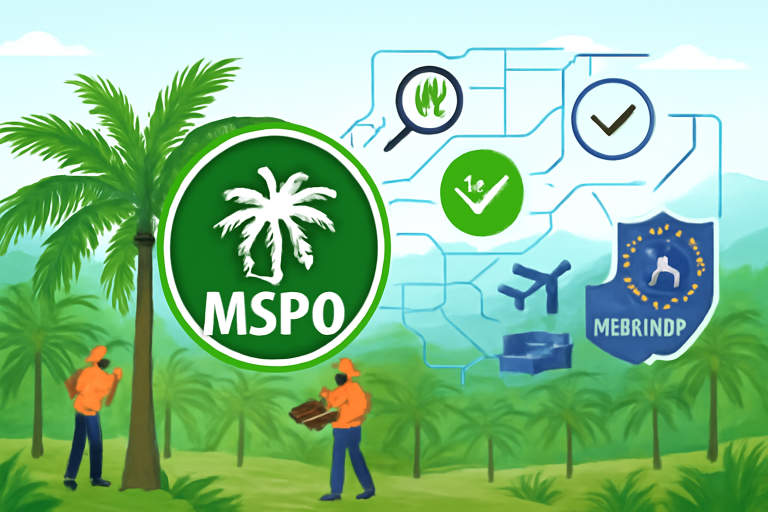Malaysia’s state palm oil agency has expressed its approval of the European Union’s latest proposal to postpone the implementation of its groundbreaking anti-deforestation law.
This marks the second time the EU has considered delaying the launch of this significant legislation, which aims to prevent products linked to deforestation from entering the European market.
The Malaysian agency’s positive reception underscores the ongoing dialogue and potential challenges faced by major palm oil-producing nations in adapting to new international environmental regulations.
The Malaysian Palm Oil Council (MPOC) released a statement indicating that the decision to delay or reconsider the implementation of the regulation would provide crucial time for the European Union.
This period would allow the EU to thoroughly address a range of concerns that have been raised regarding both the practical application of the regulation and its inherent operational and structural flaws.
Deforestation regulation
The European Union Deforestation Regulation (EUDR) represents a significant step in the global fight against deforestation and forest degradation.
This landmark legislation aims to prohibit the import of certain commodities into the EU market if they are linked to the destruction of forests, thereby ensuring that products consumed by European citizens do not contribute to environmental harm in other parts of the world.
The scope of the EUDR is broad, encompassing a range of key commodities that have historically been major drivers of deforestation.
These include, but are not limited to, soy, beef, cocoa, and palm oil. Each of these commodities has a substantial impact on land use and, consequently, on the health of global forests.
For example, the expansion of soy cultivation, particularly in regions like the Amazon and Cerrado biomes, has led to vast swathes of forest being cleared for agricultural land.
Similarly, beef production often requires extensive grazing areas, which can result in the conversion of forested landscapes into pastures.
The cultivation of cocoa, a significant global commodity, has also been associated with deforestation, particularly in West Africa.
And palm oil, a ubiquitous ingredient in many consumer products, has been a notorious driver of deforestation in Southeast Asia, leading to habitat loss and significant carbon emissions.
By imposing these restrictions, the EUDR seeks to create a more sustainable supply chain for these commodities.
It will require companies importing these products into the EU to conduct due diligence, demonstrating that their goods have not been produced on land that has been deforested after a specific cut-off date.
Challenges and concerns
The MPOC raised doubts about the regulation’s practicality, especially given the significant investments companies had made to comply and the wider industry’s drive for improved sustainability.
The association said:
Despite these efforts, the current EUDR framework contains numerous operational deficiencies, which fail to reward responsible leadership in sustainable practices.
The EU previously postponed the law for a year due to objections from industry and trade partners such as Brazil, Indonesia, and the United States, who raised concerns about compliance costs.
Malaysia, a leading global producer of palm oil, has voiced concerns regarding the regulatory burden of complying with the law and its designation by the EU as a “standard risk” nation.
EU regulations mandate inspections for 3% of all shipments from “standard risk” countries. Conversely, “low-risk” countries are subject to less rigorous due diligence requirements.
The post EU delays anti-deforestation law; Malaysia welcomes postponement appeared first on Invezz

